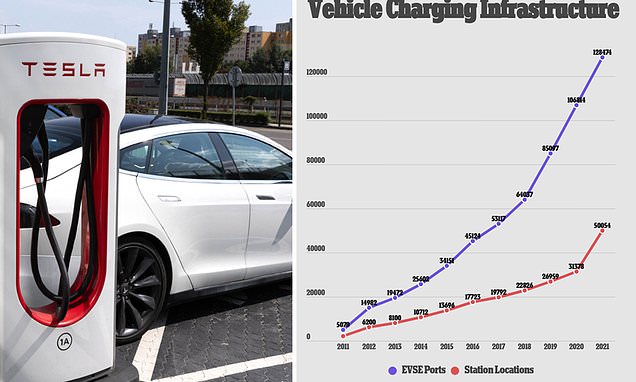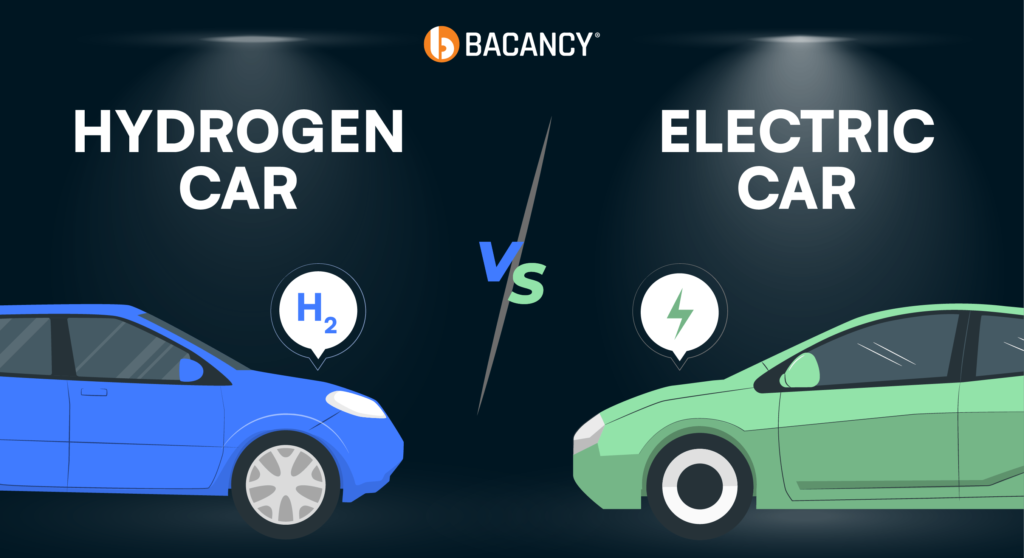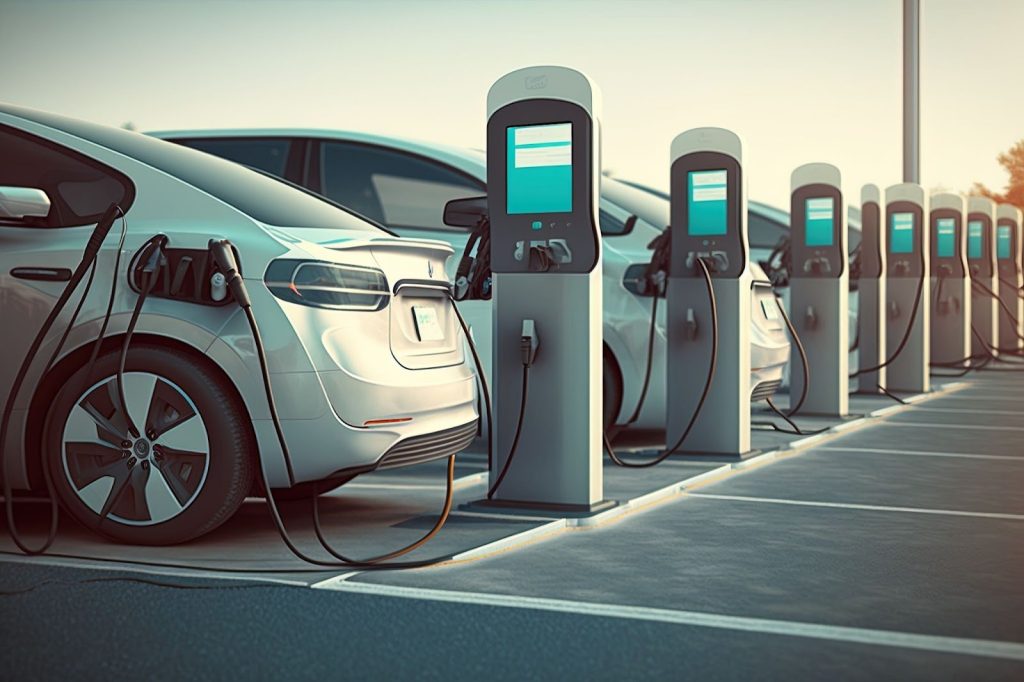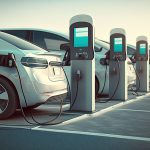The Power Shift: Why America Needs Electric Cars Now

The transition to electric vehicles (EVs) represents a significant transformation in the auto industry and energy sector, particularly in the United States. As we face pressing challenges related to climate change, public health, and economic stability, the question arises: why is it crucial for America to embrace electric cars now? In this article, “The Power Shift: Why America Needs Electric Cars Now,” we will explore critical facets of this power shift, illuminating the environmental, economic, and social imperatives driving the adoption of electric vehicles.
The Power Shift: Why Electric Cars Matter in America

Electric cars are no longer just a niche market; they have become a vital component of the global automotive landscape. With major manufacturers committing to electric mobility and consumers increasingly choosing EVs over traditional combustion engines, the stage is set for a monumental shift in how we think about transportation.
At this pivotal juncture, the United States must adapt and accelerate its transition to electric vehicles. The urgency of addressing climate change has never been more pronounced, and public awareness around clean mobility options is rapidly growing. This transformation is not solely about reducing carbon footprints but also about ensuring America remains competitive in an evolving global economy.
A Turning Point for Transportation

The rise of EVs in the global auto market marks a turning point in transportation. Countries around the world have begun implementing stricter emissions regulations, spurring automakers to pivot their strategies towards electric vehicles.
As of recent years, EV sales have skyrocketed, leading companies like Tesla, Ford, and General Motors to announce ambitious electrification plans. This shift isn’t merely a trend; it signifies a fundamental rethinking of personal mobility. With advancements in battery technology, ranges have extended, making EVs more practical than ever for everyday use.
Now is a critical moment for the U.S. to transition. International competition is heating up, and countries such as China and those in Europe are investing heavily in electric infrastructure. If America does not act swiftly, it risks falling behind in the race for green technology and innovation.
Public awareness and urgency around clean mobility are at an all-time high. Climate activists and organizations are vocalizing the need for sustainable alternatives, while consumers are demanding cleaner choices. This societal momentum creates a unique opportunity for policymakers and industry leaders to champion electric vehicles as the solution to multiple pressing issues.
Environmental Impact: Driving Toward a Greener Future

The environmental impact of electric vehicles cannot be overstated. Transitioning from traditional internal combustion engines to electric cars is a crucial step toward achieving a sustainable future. Several factors underline the importance of this transformation.
Cutting Carbon Emissions

Transportation accounts for the largest share of greenhouse gas emissions in the United States. With nearly one-third of the country’s total emissions coming from this sector, the urgency to find alternatives has reached a tipping point.
Electric vehicles help to significantly reduce CO₂ emissions and other harmful pollutants. As the grid continues to incorporate renewable energy sources such as wind and solar, the overall emissions associated with EVs steadily decrease. According to various studies, EVs produce far fewer emissions over their lifespan compared to gasoline-powered cars, even when considering the production processes involved in their manufacture.
Moreover, by adopting electric vehicles on a larger scale, America can make substantial progress towards meeting its climate goals. Reducing transportation-related emissions is essential if the nation intends to mitigate the effects of climate change effectively.
Cleaner Cities, Healthier Communities
The benefits of electric vehicles extend beyond mere carbon footprint reduction; they contribute to cleaner cities and healthier communities. Traditional vehicles emit not only CO₂ but also nitrogen oxides, particulate matter, and other toxic substances that degrade air quality.
Switching to EVs can dramatically reduce these pollutants, leading to improved urban air quality. Cities known for heavy traffic congestion, such as Los Angeles and New York, stand to gain significantly from widespread EV adoption. Cleaner air translates to better health outcomes for residents, potentially reducing healthcare costs associated with pollution-induced illnesses.
Public health benefits from cleaner transportation are profound. Studies indicate that transitioning to electric vehicles could lead to thousands of lives saved annually by preventing respiratory ailments and cardiovascular diseases. When communities champion clean transportation options, they also enhance their quality of life, creating vibrant urban environments where people want to live and work.
Economic Benefits: Saving Money, Creating Jobs

Adopting electric vehicles is not solely an environmental imperative; it is also an economic opportunity. By shifting toward EVs, the United States can save money, create jobs, and strengthen its economic resilience.
Lower Operating Costs for Drivers
One of the most compelling arguments for electric vehicles is their lower operating costs. Electricity, as a fuel source, typically costs significantly less than gasoline, saving drivers substantial amounts each year.
Moreover, electric vehicles require less maintenance compared to traditional cars. There are fewer moving parts in an electric drivetrain, which means reduced wear and tear over time. This translates into savings not just on fuel but also on repairs and servicing, making EV ownership increasingly appealing to American consumers.
Incorporating more electric vehicles onto the roads can bolster individual finances while promoting broader economic growth through increased disposable income among consumers.
Strengthening National Energy Security
Reducing reliance on imported oil is another critical benefit of switching to electric vehicles. The U.S. has historically been vulnerable to fluctuations in oil markets, which can lead to economic instability and price volatility.
Investing in domestic energy sources, including renewable energy, can increase national security and decouple the economy from foreign oil dependency. Electric vehicles, powered by homegrown energy resources, represent a strategic move towards energy independence.
By encouraging the development of local charging infrastructure and renewable energy projects, the U.S. can enhance its energy security and promote job creation in sectors related to clean energy.
Boosting the Green Economy
The transition to electric vehicles presents enormous potential for job creation across multiple sectors. Manufacturing, charging infrastructure, and battery technology are just a few areas poised for growth.
With companies like Tesla leading the charge, alongside new entrants like Rivian, the market is becoming increasingly competitive. This burgeoning industry requires a skilled workforce, providing opportunities for training and employment across the nation. The U.S. can establish itself as a leader in the global green economy, setting standards for sustainability and innovation.
As the demand for electric vehicles surges, so too will the need for professionals to support the transition—from engineers designing battery systems to electricians installing charging stations. Rather than viewing this transition as a challenge, America should seize the chance to redefine its workforce for the future.
| Economic Impact | Traditional Cars | Electric Vehicles |
|---|---|---|
| Average Fuel Cost per Year | $1,500 | $500 |
| Maintenance Costs per Year | $800 | $300 |
| Job Creation Potential | 1 job per 100 cars | 3 jobs per 100 cars |
Technology Innovation: Leading the Future of Mobility

The shift toward electric vehicles goes hand-in-hand with technological advancements that promise to revolutionize transportation as we know it. Electric cars serve as platforms for innovative applications, integrating smart technology and connectivity.
Smart, Connected, and Autonomous Capabilities
Electric vehicles are not just vehicles; they are technological marvels equipped with smart, connected, and autonomous capabilities. The integration of artificial intelligence (AI), the Internet of Things (IoT), and self-driving technologies heralds a new era of mobility.
Imagine a future where your electric car communicates with infrastructure, optimizing routes in real-time based on traffic conditions, weather patterns, and even energy consumption. Such innovations not only improve efficiency but also contribute to safer driving experiences.
Furthermore, electric vehicles can seamlessly integrate with smart cities and renewable energy grids. By utilizing vehicle-to-grid technology, EVs can serve as energy storage solutions, helping to balance supply and demand on the grid while powering homes and businesses during peak usage times.
America’s Competitive Edge
The U.S. has long remained at the forefront of automotive innovation, but as the world pivots toward electric mobility, maintaining this leadership position becomes crucial. Automakers like Tesla have emerged as pioneers in the EV market, demonstrating what is possible with forward-thinking engineering and design.
Legacy automakers are catching up, announcing transitions to electric drivetrains and aiming to introduce a range of electric models in the coming years. This influx of competition is creating a dynamic environment ripe for growth and innovation.
With the right policies and investments, America can take advantage of this moment to assert its dominance in the clean transportation sector. By fostering research and development initiatives, supporting startups, and investing in education and workforce training programs, the U.S. can retain its competitive edge globally.
Policy Support: Government Action Driving Change

Government action plays a pivotal role in facilitating the transition to electric vehicles. Supportive policies can create an enabling environment that fosters innovation while ensuring equitable access to clean transportation.
Federal and State Incentives
To encourage the adoption of electric vehicles, federal and state governments have implemented various incentives such as tax credits, rebates, and grants. These initiatives can significantly lower the initial cost barrier for consumers, making EVs more accessible to a wider audience.
Additionally, clean vehicle mandates compel manufacturers to meet specified emission standards, spurring investment in electric mobility. The expansion of charging networks is critical to support the growing number of electric vehicles on the road, and government funding plays a vital role in building out this infrastructure.
Long-Term Sustainability Goals
The U.S. has committed to ambitious climate goals, including achieving net-zero emissions by 2050. To align with these targets, comprehensive transition plans for federal fleets and public transport systems are necessary.
Transitioning federal fleets to electric vehicles is a powerful statement that showcases commitment and sets a standard for other entities to follow. Likewise, investing in public transport electrification would enhance accessibility while reducing emissions associated with conventional transit systems.
The intersection of policy support and technological advancement will define the future of electric vehicles in America. By prioritizing sustainability, equity, and innovation, the U.S. can lead a global movement towards clean transportation.
Video

Conclusion: Why the Time for EVs Is Now

The time for electric vehicles has arrived, driven by a confluence of environmental, economic, technological, and policy factors. As America grapples with climate change, public health challenges, and economic shifts, embracing electric cars presents a viable path forward. The transition to EVs is not merely an option but rather a necessity for building a sustainable, prosperous future. By recognizing the power shift toward electric mobility, we can collectively forge a brighter tomorrow for our communities and the planet.


